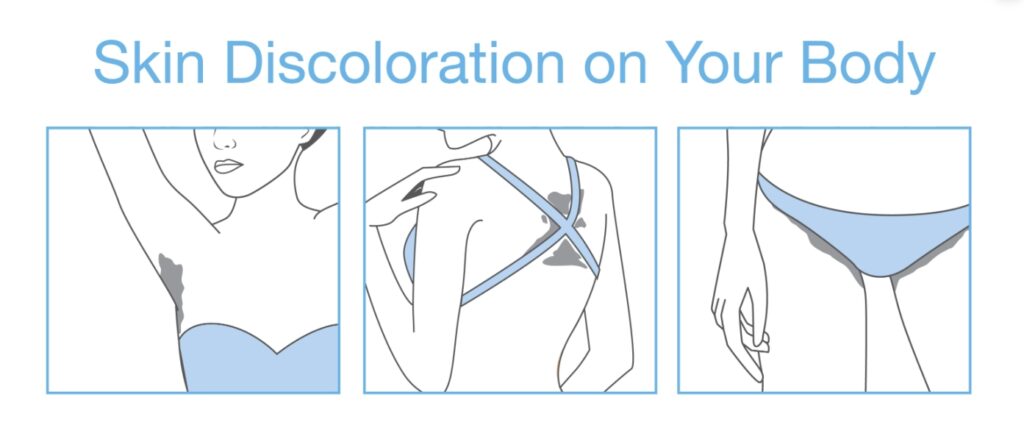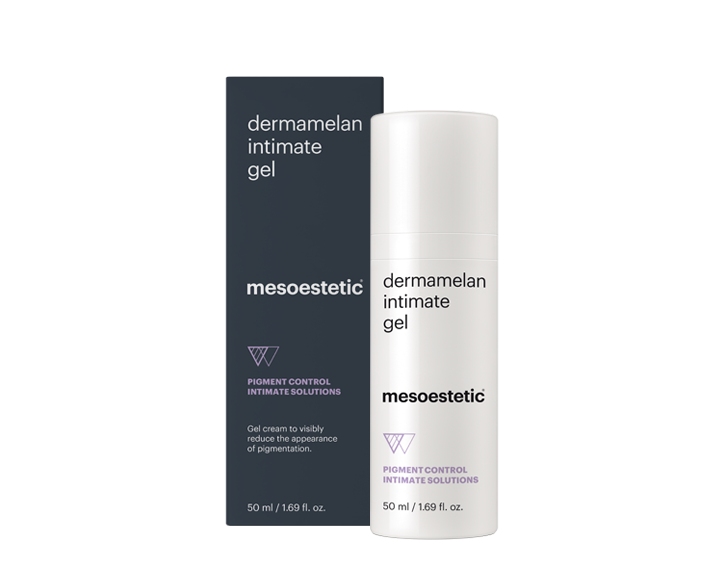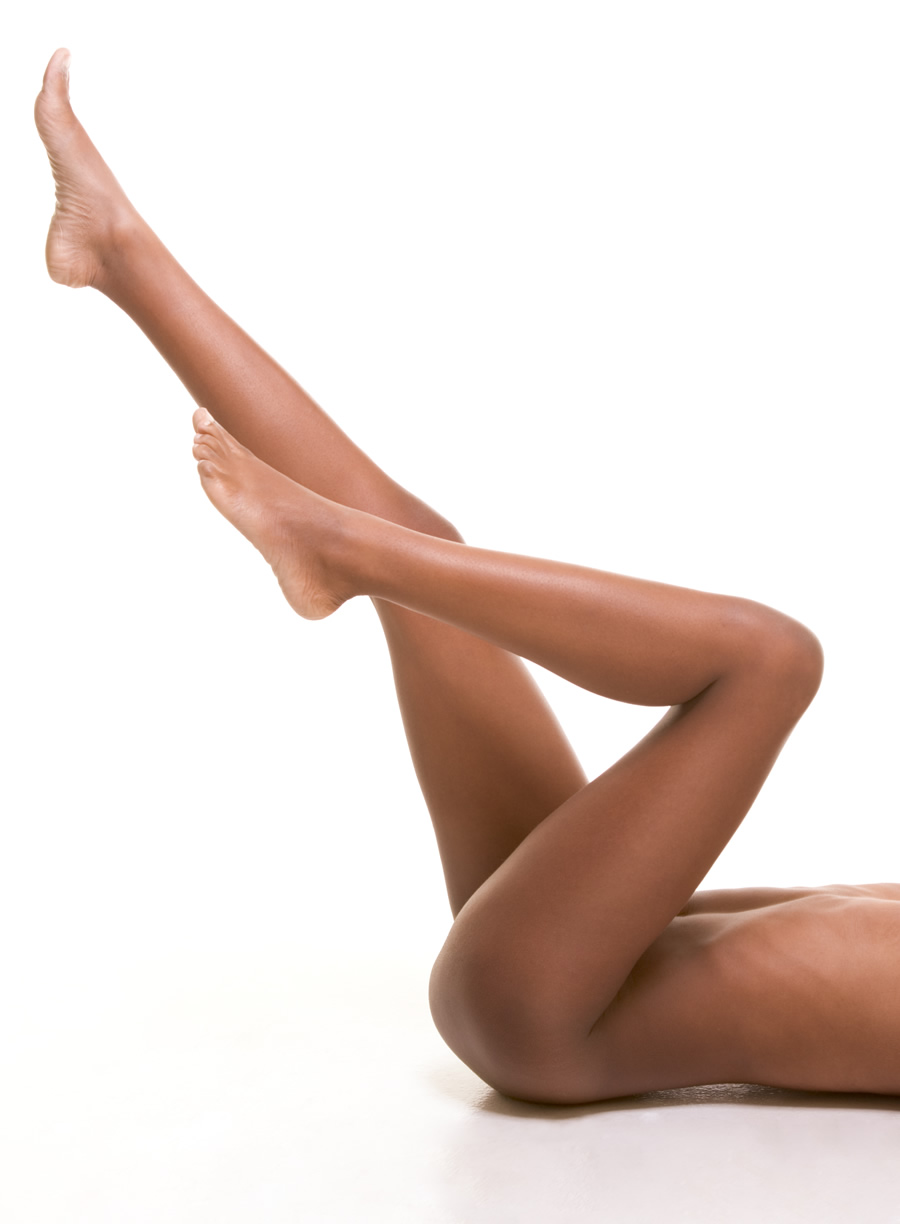Intimate Skin Lightening
As we age, hyperpigmentation, characterized by darker skin due to overproduction of the pigment melanin, can occur in many areas of the body, including intimate areas, such as the inner thigh, bikini area, genital area, and perianal area. Discoloration of the skin in private areas is very common and natural. It can occur for many reasons, including hormonal changes, certain medications, wearing tight clothing, friction, and as a result of frequent hair removal processes like waxing and shaving. While hyperpigmentation in intimate areas is very common, some patients find that they would like to lighten and brighten the skin in that area. Many wonder if skin lightening in intimate areas is safe at all. The best first step for seeking treatment is to schedule a consultation appointment with expert board-certified dermatologist, Dr. Michele Green in NYC.
Dr. Michele Green has many treatment options available at her New York City dermatology office, ranging from in-office treatments to recommendations on the best skin lightening creams. Certain treatment options may not be safe for all skin types, so Dr. Green is always careful to recommend the procedure or skincare products that will be safe and effective for each individual. For some patients, laser treatment may be the most effective option, which targets melanin in the treatment area with precise beams of laser energy that leave the surrounding skin unaffected. Others may benefit from the Dermamelan Intimate treatment, which boosts skin cell turnover and collagen production for a brightening effect that continues to improve over time. To find out which option will be best for you, contact Dr. Green today.
Experienced board-certified dermatologist Dr. Michele Green has been expertly treating patients in her Upper East Side, New York City dermatology office for more than 25 years. Adept at many cosmetic and medical procedures, Dr. Green has a wide range of treatment options and cosmetic products available at her office, including skincare products from her proprietary MGSKINLABs, laser treatments, Botox, dermal fillers, chemical peels, and more. Dr. Green is very experienced in treating patients of all skin types and chooses the products and procedures that are safest for each patient’s skin color. Well known for high patient satisfaction, Dr. Green has been voted one of the best healthcare providers in New York City by such publications as Castle Connolly, Super Doctors, and New York Magazine.
What is skin bleaching and whitening?
Skin bleaching or skin whitening is the process by which dark spots or areas of pigmentation on the skin are lightened to achieve a more even skin tone or lighter skin. The practice works by applying a lotion, cream, or soap that contains specific chemicals to inhibit melanin, the pigment that gives the skin its color, in the treatment area. When prescribed by a dermatologist, skin-lightening products can be a safe and effective way to address skin conditions such as age spots, acne scars, hyperpigmentation, and melasma. However, the chemicals in these products are not safe for long-term use or when used in high concentrations to achieve the overall appearance of light skin. As skin-lightening products are an expanding global industry, it can be difficult for the FDA to regulate all skin-bleaching cosmetic products that are available online or over the counter, making the regulation of these products a growing public health concern. That is why it is imperative to consult an expert dermatologist before using skin-bleaching products.

What is intimate skin lightening?
Patients often wonder, “What is intimate lightening?” Intimate lightening treatment is a process by which patients lighten the skin in sensitive, intimate areas, such as the vulva, labia, bikini area, inner thighs, buttocks, underarm, and perianal area. As we age, the skin in intimate areas may darken due to hormonal changes from pregnancy, menopause, or contraceptives, hair removal techniques like waxing and shaving, and friction from tight-fitting clothing. Your skin type can also contribute to whether your skin in intimate areas is lighter or darker. While darker skin in intimate areas is perfectly natural—in fact, most people have a darker skin tone in the bikini area than the rest of their body—some patients prefer lighter skin in these areas. Intimate skin lightening treatment at Dr. Green’s Upper East Side dermatology office provides patients with lighter, brighter skin in intimate areas without the need for downtime.
How to lighten skin in intimate areas
The most important first step before beginning skin lightening treatment is to schedule a consultation appointment with a board-certified dermatologist, such as Dr. Michele Green. The skin in intimate areas is very sensitive, meaning that the wrong skin lightening products and treatments could have very negative side effects when applied incorrectly. When you have your initial consultation with Dr. Green, she will examine the treatment area and discuss your aesthetic goals before making a recommendation for the best intimate skin lightening treatment for you. For the best results, Dr. Green may recommend a combination of in-office treatments, such as laser treatment, chemical peels, or Dermamelan Intimate, with at-home skincare products like a gentle cleanser, hydrating moisturizers, and a light exfoliant containing vitamin C, kojic acid, or retinol.

How do intimate skin lightening and intimate bleaching treatments work?
Intimate lightening treatments generally work to decrease the concentration of melanin, which is the pigment responsible for skin color, in the treated area. The method of action depends on the type of treatment that is used. Some skin lightening creams work by interfering with melanin production on a cellular level, while other creams trigger exfoliation and collagen production, which brightens and tightens the skin. Certain types of chemical peels can also be used for intimate skin lightening, and work via the application of an acidic solution that triggers skin cell turnover and collagen production for brighter, tighter, more youthful-looking skin. For some patients, Dr. Green will recommend laser treatments, which use targeted wavelengths of light that are absorbed by the dark skin in the treatment area, destroying the melanin there while leaving the surrounding tissue unaffected. Intimate lightening treatments that are available at Dr. Green’s Upper East Side dermatology office are safe and effective with no downtime required.
What is the best skin lightening treatment for intimate areas?
The best skin lightening treatment for intimate areas depends on each patient’s skin type and aesthetic goals. Choosing the wrong skin lightening treatment may have negative side effects, which is why patients need to consult with an expert dermatologist, such as Dr. Green, before attempting any treatment options. When performing skin lightening treatments, Dr. Green will often turn to Pico lasers, which target excess melanin in the treatment area with short, precise beams of laser energy. The light emitted by the laser is absorbed by the melanin in the treated area, causing it to break down while leaving the surrounding skin unaffected. For the best results, Dr. Green recommends approximately three treatment sessions. As an alternative to laser treatment, Dr. Green may turn to Dermamelan Intimate, which consists of two treatment phases. First, in-office application of the Dermamelan Intimate solution, followed up with consistent application of an at-home gel for three months after the initial treatment. Some skin lightening creams that are designed specifically for sensitive areas can also be used for intimate skin brightening. Typically, these creams contain ingredients like kojic acid, niacinamide, vitamin C, or retinol, which can help with skin cell turnover, inhibit melanin production, and boost collagen production for brighter, lighter skin. It is still important to discuss with a board-certified dermatologist before using skin brightening creams, as many over-the-counter brightening products can be harmful when used on certain skin types.

Does intimate lightening cream work?
Skin lightening creams, lotions, soaps, and powders contain chemicals that inhibit the production of melanin, a pigment produced by cells known as melanocytes. The various ingredients in bleaching creams and skin brightening products reduce the appearance of dark spots and discoloration in different ways. Products containing hydroquinone reduce the number of melanocytes in the treatment area, which, in turn, reduces the concentration of melanin, leading to lighter skin. Some products contain vitamin C, which is an antioxidant that reduces the melanin production in the melanocytes. Products containing glycolic acid, kojic acid, arbutin, or retinoids work by exfoliating the skin, which leads to skin cell turnover, revealing lighter skin underneath. While skin-lightening products can help brighten the skin and achieve a more even skin tone, patients should always consult with a dermatologist before beginning skin bleaching treatment. They should follow all healthcare provider instructions, particularly when aiming to use lightening creams in sensitive areas of the body, such as the armpits, bikini line, genital area, vulva, labia, and perianal area. Incorrect application of skin whitening creams on the sensitive skin in intimate areas can lead to permanent damage to the treated area, including scarring, loss of sensation, pervasive pain, and increased skin darkening.
Bleaching in intimate areas FAQs
Why is genital skin darker?
Genital skin is often naturally darker than the skin on other areas of the body. Some patients may notice their skin in intimate areas becoming darker over time, which can be due to a number of factors. Hormonal changes caused by pregnancy, menopause, post-partum, and changes in contraceptives can affect melanin production, leading to hyperpigmentation in many areas of the body, including intimate areas. Some methods of hair removal can also affect levels of skin discoloration in intimate areas, specifically methods that can cause inflammation or irritation, like waxing and shaving. Constant friction, chafing, or rubbing from tight clothing, jogging, or walking can also increase the risk of hyperpigmentation in the genital areas.

How to lighten inner thighs and the private area
Darker skin in intimate areas is natural, and is typically not indicative of any larger health concerns. If you are interested in skin brightening in intimate areas, the best first step is to schedule a consultation with expert board-certified dermatologist, Dr. Michele Green. When you arrive at Dr. Green’s office, she will examine the treatment area and discuss your aesthetic goals with you before determining the treatment option that will be safe and effective for you. Suppose you are receiving an in-office treatment like laser skin lightening. In that case, Dr. Green may prepare the treatment area by applying a topical numbing cream to decrease any risk of discomfort during the procedure. Laser treatment for skin lightening is a quick procedure that typically takes 15-20 minutes and does not require any downtime. It is essential to follow all aftercare instructions to avoid skin irritation after the procedure. Dr. Green recommends that patients avoid heat exposure, such as hot showers, saunas, or hot tubs, and wear light and breathable clothing for five to seven days post-treatment.
How to whiten dark private areas
Many patients wonder, “How to lighten your private area?” Intimate areas of the body, including the perianal area, genital area, buttocks, groin, vulva, labia, and inner thighs, may have a darker pigmentation than the skin on the rest of the body. Several factors contribute to hyperpigmentation in intimate areas, including hormonal changes, medications, methods of hair removal, friction, and tight clothing. Patients looking to lighten the skin in private areas can turn to in-office treatments available at Dr. Green’s New York City dermatology office, including laser treatments like Mesopeel chemical peels, and Dermamelan Intimate. To find out which treatment option is most effective for you, schedule your initial consultation with Dr. Green.
How to whiten private parts naturally
If you are interested in skin lightening in intimate areas, it is essential to consult with an expert, as there is a greater risk of serious side effects if you attempt treatment on your own. With many skin-lightening or skin-bleaching products available for purchase online, it is very difficult for the FDA to regulate these products fully. As such, products that are advertised as “natural” or “at-home remedies” may contain chemicals that can cause permanent damage to the sensitive skin in intimate areas. Using “natural” materials like lemon juice, oatmeal, or coconut oil may be unhealthy for those sensitive areas as well. If you do purchase a product online or over the counter for at-home use, be sure to test it on a small portion of your body, like your arm, first. If there is a negative reaction on your arm, a more severe negative reaction will likely occur in the intimate areas as well.
Is intimate lightening safe?
Intimate skin lightening can be a safe process when an expert board-certified dermatologist, such as Dr. Green perform it. Performing skin lightening in intimate areas at home without the guidance of an expert can result in permanent side effects, such as genital irritation, burning, infection, and inflammation. Patients must follow instructions precisely for skin lightening treatments, as overuse of products may result in lasting pain or loss of sensation in the treated area. Additionally, certain treatment options are particularly unsafe for patients with darker skin tones, as some laser treatments and topical lightening creams can cause permanent scarring in the form of hyperpigmentation or hypopigmentation. Dr. Green is well-versed in treating patients of various skin tones and types, and carefully chooses treatment options that will be safe for each patient.

How to get started with intimate skin lightening today
Many patients experience discoloration in intimate areas, such as the genital area, perianal area, vulva, labia, and inner thighs. While hyperpigmentation in these private areas is natural, some patients feel that they would like the skin in intimate areas to match the color of other areas of the body. For patients looking to reduce hyperpigmentation and lighten the skin in these areas, the best first step is to schedule an appointment with an expert dermatologist, such as Dr. Michele Green. At Dr. Green’s Upper East Side, New York City office, Dr. Green has several treatment options available for lightening the skin, including laser treatment, chemical peels, and the Dermamelan Intimate treatment course. She can also recommend the best skincare products for maintaining clear, bright, healthy skin. To find out which treatment option is best for you, contact Dr. Green today.
Dr. Michele Green is an internationally renowned board-certified dermatologist with over two and a half decades of experience providing her patients with the best non-invasive treatment options. Dr. Green takes a holistic approach and embraces a less-is-more philosophy, creating customized skincare routines and treatment plans that cater to the unique concerns and aesthetic goals of her patients. She is consistently identified as one of New York’s best dermatologists by Castle Connolly, New York Magazine, and Super Doctors for her dedication to her patients and expertise. Please call us at 212-535-3088 or email our New York City-based office today to schedule a consultation with Dr. Michele Green to determine if intimate skin lightening treatment is right for you.
 212-535-3088
212-535-3088